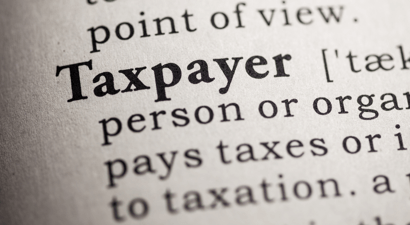Budget Speech: A Sensible Approach
Written by the Shepstone and Wylie Tax Team A key message from the Minister of Finance’s Budget Speech is his intent to broaden and stimulate the tax base as opposed to increasing the tax burden on taxpayers. This comes as a relief to many taxpayers following proposals in recent times to increase taxes to fund fiscal deficits and COVID-19 relief programmes.
The revenue shortfall for the 2020/2021 tax year is R213,2 billion, which is not as large as the shortfall of R312,8 billion estimated during the Medium-Term Budget Speech. It does however indicate the severe economic impact of COVID-19 on the economy and conversely the fiscal coffers. The overall impression of the Budget, given these trying times, is that of reasonability, and we highlight some of the main tax proposals below. South Africa has a relatively high corporate tax rate in comparison with similar countries and trading partners.
High corporate taxes reduce competitiveness and create an incentive for profit shifting to lower tax jurisdictions. Although the corporate tax rate will be left unchanged at 28% for the coming fiscal year, there was a recognition that this rate could reduce to 27% on or after 1 April 2022. This is encouraging news and aligns with the intent to stimulate economic activity and grow the tax base. In doing so, certain tax incentives which historically did not achieve a desired outcome, or which do not render equitable results, will be phased out over time. In the previous Budget it was proposed to limit both interest deductions and the utilisation of assessed losses, which has now been put on hold to the following fiscal year.
The personal income tax brackets and rebates will increase by 5% which is a higher than inflation increase. This will alleviate the tax burden on individuals and, practically speaking, could lead to taxpayers who received inflationary increases falling in the same or lower tax bracket. As a result of taxpayers having to work from home during the lockdown, the Minister is reviewing travel and home office allowances to cater for the ‘new normal’. Considerations will include how to create certainty and simplify the use and extent of the allowance, which is a welcomed approach.
An inflationary adjustment will apply to the value of medical tax credits which will increase from R319 to R332 for the first two members, and from R215 to R224 for all subsequent members. The increase in fuel levies, carbon tax and excise duties on alcohol and tobacco is not unexpected and, as always not great news for consumers. Government is however of the view that some of these increases will have a favourable impact on the socio-economic development in South Africa:
- An increase of 15c/litre will be imposed in respect of the general fuel levy and 11c/litre in respect of the Road Accident Fund levy. These increases will take effect from 7 April 2021, leading to an unwanted fuel increase for motorists in April.
- In order to further South Africa’s efforts towards the maintenance of environmentally friendly strategies in relation to climate change, the carbon tax rate will increase by 5.2%.
- Excise duties on alcohol and tobacco will both be increased by 8%. The policy framework will be reviewed during the year.
- Last year excise duty was introduced for heated tobacco products. A differentiation is created for the different product types, as cigarettes are taxed per packs of 10 or 20 sticks, while other products will be taxed by weight. Treasury will publish a discussion paper on proposals to tax electronic nicotine and non-nicotine delivery systems in due course.
- Furthermore, the levy of 25c/bag in relation to plastic bags will be reduced to 12.5/bag in the case of bio-based plastic bags.
The following additional tax policy and administrative adjustments are of interest:
- Reviewing the nature of long-service awards for fringe benefit purposes;
- Curbing abuse in the employment tax incentive;
- Tax treatment of the cession of a right to receive an asset;
- Anti-avoidance rules in respect of loan transfers between trusts;
- Technical refinements of the corporate reorganization rules;
- Third-party reporting ought to be extended to account for the issued receipts for tax-deductible donations.
It is comforting to note that the Minister has recognised the shortfalls in the tax system and aims to broaden the tax base, improve tax compliance, and simplify tax administration through digitalisation. All in all, from a tax perspective and so as to rebuild the economy, the Minister has taken a balanced and sensible approach in the 2021 Budget.





